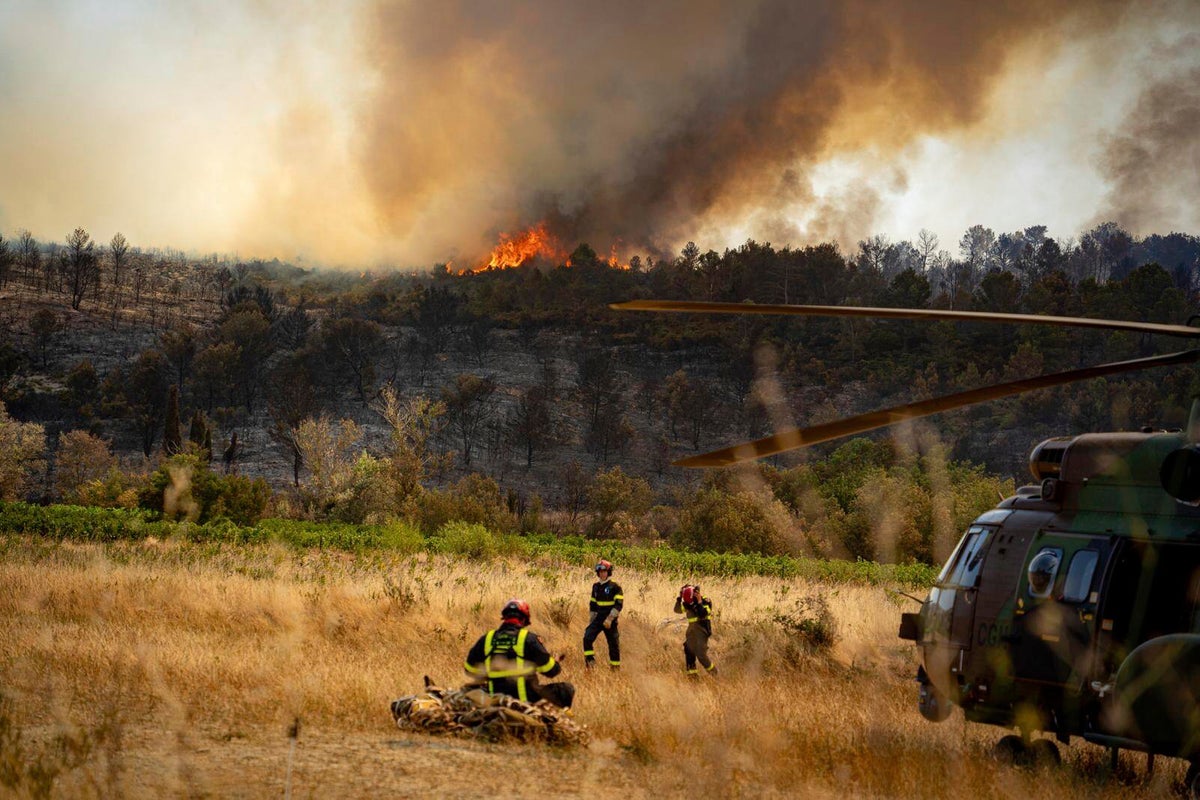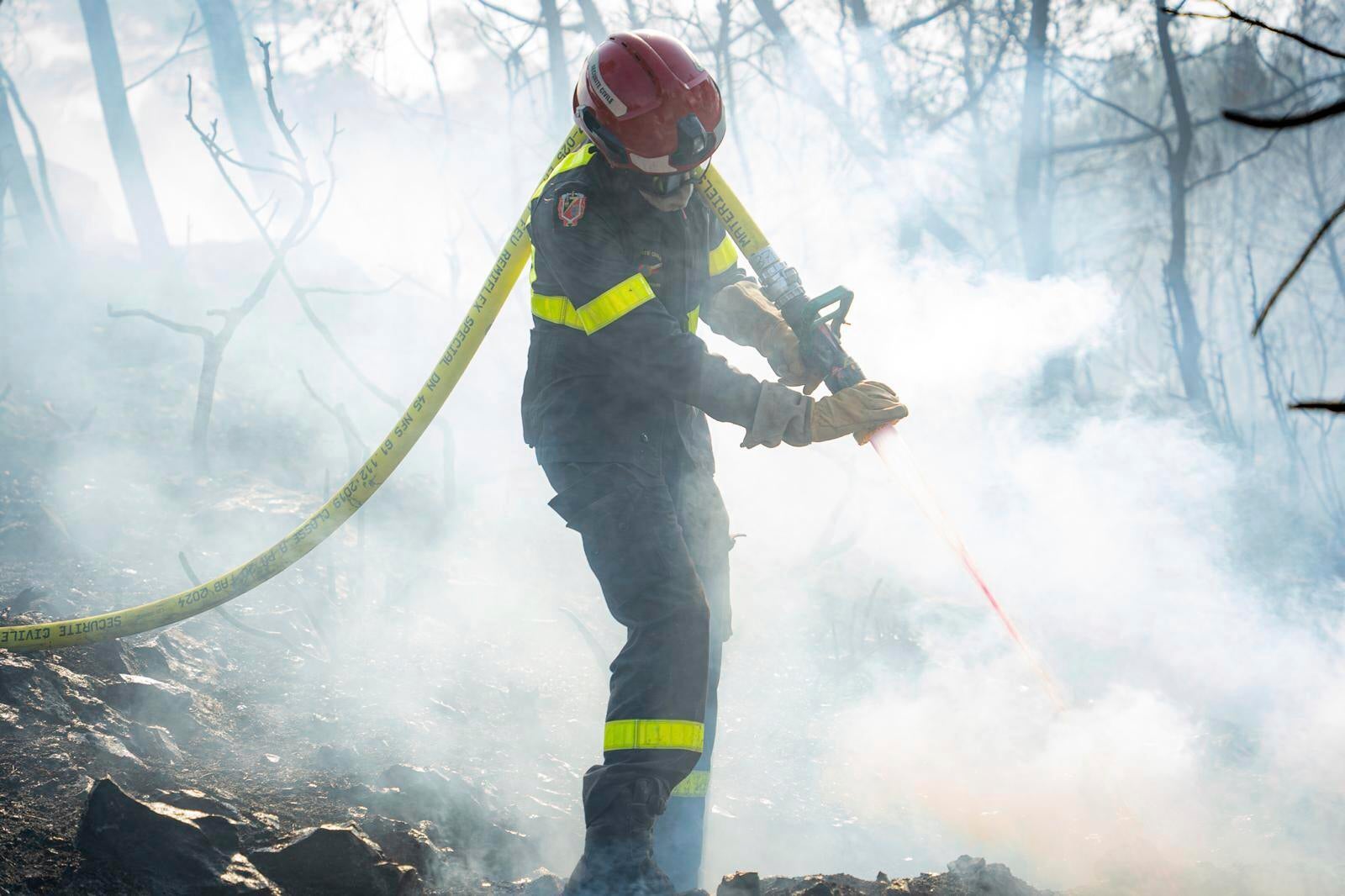
French firefighters and local authorities are maintaining a high alert in the south of the country, despite containing France's largest wildfire in decades, as forecasts of soaring temperatures threaten to reignite the devastating blaze.
The inferno, which raged for three days across more than 160 square kilometres (62 square miles) of the Aude wine region, claimed one life and forced hundreds of residents to flee their homes. Fuelled by hot and dry conditions, the blaze rapidly spread, its perimeter reaching 90 kilometres.
Local authorities have urged continued vigilance throughout the weekend, with temperatures expected to exceed 30 degrees Celsius (86 degrees Fahrenheit) during another heatwave, raising fears of a renewed outbreak.
Region administrator Christian Pouget said some 1,000 people have not yet been able to return to their homes after the fire swept through 15 communes in the Corbières mountain region, destroying or damaging at least 36 homes. One person died at home, and at least 13 others were injured, including 11 firefighters, according to local authorities.

Residents have been warned not to return home without authorization, as many roads remain blocked and dangerous. Those forced to flee have been housed in emergency shelters across 17 municipalities.
“On Tuesday when the fire started, we learned that the inhabitants of the nearby village of Durban-Corbières were arriving in Tuchan," Beatrice Bertrand, the mayor of Tuchan, told The Associated Press. "We have received and hosted over 200 people. We gave them food, thanks to local businesses who opened their stores despite it being very late.
"Civil Protection brought us beds. And also the local villagers offered their homes to welcome them. It was their first night here and many were shocked and scared.”
An investigation is underway to determine what sparked the fire.
The fire was the largest recorded since France’s national fire database was created in 2006. But France’s minister for ecological transition, Agnès Pannier-Runacher, called the blaze the worst since 1949 and linked it to climate change.
Southern Europe has seen multiple large fires this summer. Scientists warn that climate change is exacerbating the frequency and intensity of heat and dryness, making the region more vulnerable to wildfires. Last month, a wildfire that reached the southern port of Marseille, France’s second-largest city, left around 300 people injured.
Europe is the world’s fastest-warming continent, with temperatures increasing at twice the speed of the global average since the 1980s, according to the European Union’s Copernicus Climate Change Service.







